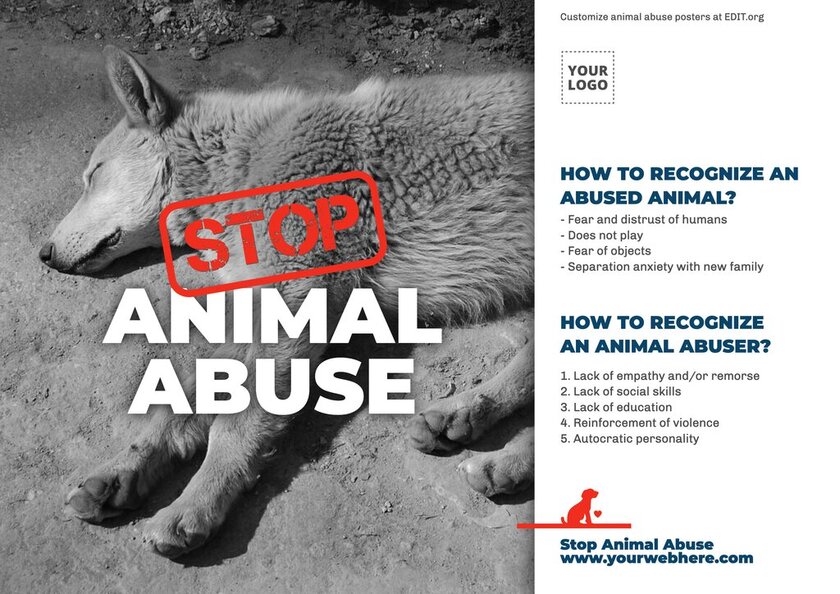In the heart of the Natural State, Arkansas, there exists a profound commitment to protecting the welfare of all living creatures. However, despite the state’s charming landscapes and rich wildlife, instances of animal cruelty persist. Understanding how to report such heinous acts is vital for every citizen who wishes to advocate for those without a voice. This guide aims to illuminate the procedures, legal frameworks, and practical approaches to reporting animal cruelty in Arkansas.
First and foremost, one must recognize the legislative backbone underpinning animal welfare in Arkansas. The Arkansas Animal Cruelty Law outlines specific definitions of what constitutes cruelty. This includes but is not limited to physical abuse, neglect, and abandonment. It is crucial for citizens to familiarize themselves with these definitions, as awareness is the first step in advocacy. Observation of animal distress—whether that’s a dog confined to a hot vehicle or a malnourished horse in a field—should never go unreported. Such conditions not only harm the animals involved but also reflect negatively on the community’s moral fabric.
Understanding the nuances of the law is essential. Under Arkansas Code § 5-62-101, animal cruelty is defined as intentionally, knowingly, or recklessly causing the death, suffering, or impairment of the wellbeing of an animal. Familiarity with such legal terms can arm citizens with the knowledge necessary to present a compelling case when reporting incidents. However, it is critical to corroborate suspicions with concrete evidence before proceeding with a report.
When engaging with a potential case of cruelty, meticulous observation can be your strongest ally. Document the scene with notes and photographs. Capture date and time stamps, and any details regarding the nature of the distress observed. For instance, if a dog is tied up without shelter in adverse weather conditions, note the temperature, the time, and any visible signs of suffering such as excessive barking or shivering. This meticulous documentation will prove invaluable to authorities when investigating the claim.
Once evidence has been gathered, the next step is to report the incident to the appropriate authorities. In Arkansas, the local law enforcement agency or animal control should be notified. Each county may have its own specific animal control division or designated officer who specializes in handling such cases. The Arkansas Department of Health also provides resources and can guide citizens in understanding reporting protocols.
When making a report, be prepared to provide your documentation along with a detailed account of your observations. While anonymity can sometimes be maintained, providing your contact information can facilitate follow-up inquiries and help build a stronger case against the alleged perpetrator. It is essential to understand that while the process may seem daunting, authorities often rely on citizen reports to enforce animal welfare laws effectively.
In the instance that local authorities are unresponsive, there are further avenues to explore. Non-profit organizations dedicated to animal rights often assist in such situations. Organizations such as the Arkansas Humane Society can mobilize resources and advocate on behalf of the animals suffering. They may provide assistance in fostering animals, offering veterinary care, or even back your report through their channels. Reaching out to such organizations adds an additional layer of accountability to your efforts.
Regarding interpersonal complexities, reporting animal cruelty can sometimes lead to unforeseen social repercussions. It is crucial to approach the situation with tact and objectivity. Anonymous reporting, through methods such as utilizing hotlines or submitting written complaints, can protect individuals from potential backlash or confrontations. Witnessing cruelty should not turn into a personal conflict; instead, focus on the mission: the protection of animals.
Arkansas fosters an environment conducive to advocating for animal welfare; thus, community involvement can be a catalyst for change. Holding community events, such as awareness campaigns, educational workshops, and volunteer opportunities at local shelters, creates a community that prioritizes animal rights. Engaging with locals and encouraging discussions about animal welfare laws encourages collective responsibility and amplifies advocacy efforts.
Of course, reporting is merely a piece of the puzzle. Following up on your report can sometimes be an essential act of due diligence. After making the report, touch base with the respective authorities to ascertain the status of the investigation. Understanding the outcome not only provides peace of mind but can also contribute to future advocacy efforts—learning which tactics yield results can help shape future actions in similar situations.
Ultimately, advocacy against animal cruelty in Arkansas is a shared responsibility. Each report can potentially save lives, contribute to legal consequences for abusers, and foster a culture of compassion. The laws laid out by the state are only as potent as the citizens who are willing to utilize them. By cultivating an informed, vigilant, and compassionate populace, Arkansas stands a stronger chance of becoming a sanctuary for all creatures, big and small. Let us embrace our role as guardians of the voiceless and take resolute action when we bear witness to the suffering of animals.
In conclusion, the journey toward effectively reporting animal cruelty is multi-faceted and requires a blend of knowledge, courage, and compassion. By arming ourselves with understanding, documenting facts meticulously, and utilizing the appropriate channels, we can transform our concern into action. Each voice contributes to a chorus demanding justice and compassion for animals. Let us not remain silent in the face of cruelty but instead foster a culture of vigilance that champions the rights of all living beings in Arkansas.








